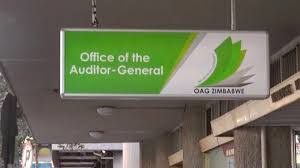
Brenna Matendere
HARARE—Zimbabwe National Road Administration (ZINARA) board members gave themselves exemptions from paying toll and vehicle licence fees without the approval of the parent ministry, in violation of the Public Entities and Corporate Governance Act.
The audit by the Office of the Auditor General (OAG) shows that the board resolved to grant each member exemption for two personal vehicles.
The law requires such benefits to be cleared by the responsible minister and, in some cases, the president.
In response, ZINARA management said a resolution was submitted to the Corporate Governance Unit and the ministry of transport “as required by law.”
However, the OAG report noted no approval was granted, rendering the exemptions unlawful.
The Public Entities and Corporate Governance Act [Chapter 10:31] stipulates that no board member may receive benefits without ministerial clearance.
Section 14(1) states: “The Minister, with the approval of the Minister responsible for finance, and after consultation with the line Minister concerned, may by notice published in the Gazette specify the amount that may be received, by way of remuneration, allowances and other benefits, by members of the board of any public entity.”
The Act goes further in Section 14(3), which provides: “Notwithstanding any other law, where a notice has been published in terms of subsection (1) fixing an amount to be received by members of any board, no such members shall be paid or given any remuneration, allowance or benefit in excess of the amount specified in the notice.”
In addition, Section 14(8) reinforces Treasury oversight, stating: “This section shall not limit the obligation of an accounting officer or member of the Civil Service employed in a line Ministry to comply with section 51A (‘Separation of roles of appropriate Ministries and public entities’) of the Public Finance Management Act [Chapter 22:19] that is, to seek clearance from the Treasury before approving the remuneration or allowance of any member of a public entity.”
Leading legal think tank Veritas media officer economic governance, Paidamoyo Muzulu, said although the Public Entities and Corporate Governance Act is meant to protect public funds and prevent abuse of office there is no political will to implement its provisions.
“The Public Entities and Corporate Governance Act is a good piece of legislation for good corporate governance in Zimbabwe.
“However, having a law and implementing it are two different things. Zimbabwe still experiences poor leadership in state owned enterprises despite the Act,” said Muzulu.
“There is still a lot of corruption, corporate sleaze and abuse of public funds as revealed by the Auditor General reports.
“There seems to be no political will among those in government to see to it the full implementation and compliance of the law,” added Muzulu.
These irregular exemptions flagged by the OAG add to a string of financial governance failures at the road authority.
ZINARA has been embroiled in multiple scandals over the years involving misuse of tollgate revenue, fraudulent contracts, and tender irregularities.
In 2019, 30 cashiers were dismissed for under-banking and abusing exemptions, leading to substantial, though unspecified, losses.
In 2022, a syndicate of 16 employees at the Gweru-Shurugwi tollgate allegedly defrauded the authority of US$9.8 million through fictitious transactions.
In August 2023, ZINARA suffered a loss of US$150,000 in a tollgate scam at the Shamva tollgate.
Three ZINARA employees,Nyaradzo Gusha, Flavian Kundishora, and Tanaka Theresa Magaisa, together with Patson Tavengwa, a technician from 10-10 Technologies, were accused of fraud and money laundering after allegedly installing an override system that diverted toll fees for personal gain.
This fraudulent activity, which took place on July 19, 2023, was uncovered the following day by ZINARA’s risk and control department through CCTV footage.
The OAG’s report also flagged unprocedural alterations of tollgate cash records.
At four tollgates, officers made changes during cash handovers without signing, creating room for fraud.
“The Administration’s standard operating procedures at licensing offices and tollgates did not provide guidance on the procedures to be followed when alterations are done during the recording of monetary transactions.
“Officers at four (4) tollgates were making several alterations during the cash handover-takeover without counter-signing for such alterations.
“This was contrary to best practice in which any alterations to transactions should be signed for by the person responsible for altering,” reads the OAG report.
The OAG report also raised alarm over a ZWL$190.2 billion deficit in 2023, driven largely by exchange rate losses on a foreign loan.
“I draw your attention to the fact that the Group incurred a deficit of ZWL$190.2 billion (2022: ZWL$50.4 billion) during the year ended 31 December 2023.
“As of that date, the Group incurred significant losses mainly due to the exchange rate losses arising from the translation of a foreign loan balance to Zimbabwean dollars.
“This condition indicates that a material uncertainty exists that may cast significant doubt on the Group’s ability to continue growing,” reads the report.
Another gap lies in enforcement of axle-load regulations.
The OAG audit report found that weighbridges in three provinces were not working, allowing trucks to pass without paying overload fees.
Yet the law requires all overloaded vehicles to pay charges under the Road Traffic (Axle-loading) Regulations, 1993.
The OAG recommended urgent repair and completion of weighbridges to plug revenue losses.
ZINARA, established to collect road user fees and disburse funds for road maintenance, has long been criticised for weak controls and poor accountability.
The latest findings confirm persistent governance problems.

